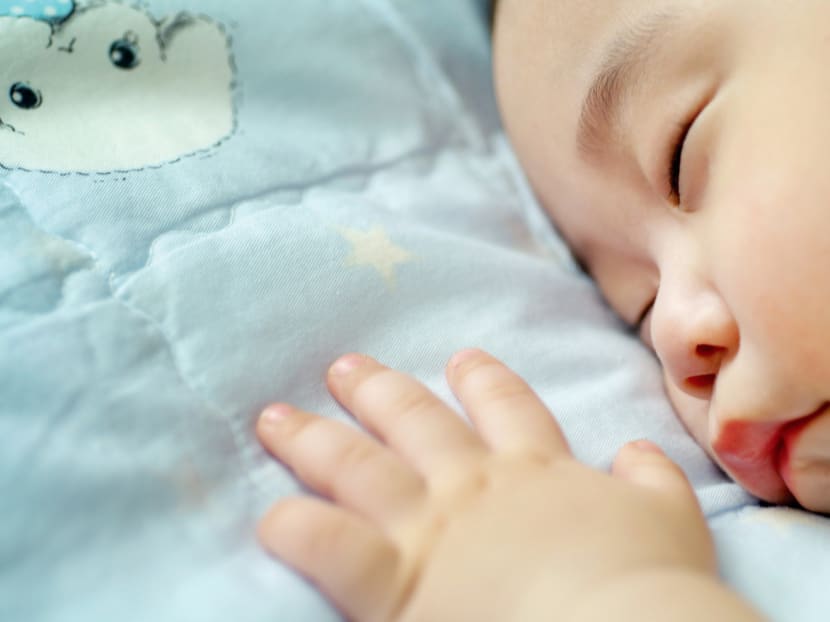Safe sleep for babies
SINGAPORE — The three-month-old infant had just finished his milk feed and was left in a traditional sarong cradle for his nap. When his mother checked on him three hours later, he was unresponsive.

Last year, National University Hospital saw three cases of infants found dead in their sleep with no obvious cause. Photo: Thinkstock
SINGAPORE — The three-month-old infant had just finished his milk feed and was left in a traditional sarong cradle for his nap. When his mother checked on him three hours later, he was unresponsive.
Despite the emergency department’s efforts, the baby could not be saved. This incident was one of the cases of infant sleep-related deaths that Dr Goh E Shaun, emergency medicine specialist and consultant at Raffles 24 Hour Emergency, has encountered on the job.
“It was likely the child had vomitted and then aspirated the vomit, resulting in airway obstruction. This caused the child to go into cardiac arrest which went unnoticed by the mother,” said Dr Goh.
NOT SUITABLE FOR SLEEP
Sleep-related deaths are one of the most common causes of deaths for infants up to 12 months of age. In a study published in The Journal of Paediatrics in April, researchers analysed 47 infants and toddlers under the age of two who died while placed in sitting and carrying devices, such as car seats, swings, bouncers and slings.
They found that the improper use of these devices as alternative sleeping areas can lead to injury or even death. More than half of deaths in car seats were due to strangulation from straps, while the rest were caused by suffocation due to the way the babies were positioned.
The duration of time from when the babies were last seen alive to when they were discovered ranged from as little as four minutes to up to 11 hours.
Dr Mary Varughese, associate consultant at the Division of General Ambulatory Paediatrics and Adolescent Medicine at National University Hospital (NUH), said worldwide incidence of sudden infant death syndrome (SIDS) has dramatically reduced since back-to-sleep campaigns were introduced in the 1990s.
IMPROPER USE OF DEVICES
However, accidents can still happen. Last year, NUH saw three cases of infants found dead in their sleep with no obvious cause.
More commonly seen are preventable injuries from the improper use of infant seats or carrying devices. Each year, NUH children’s emergency department treats up to 20 infants and young children under the age of two for such injuries, ranging from minor scrapes to more serious head injuries and limb fractures, said Dr Varughese.
“One five-month-old baby fell out of a traditional sarong cradle after his mother left his side briefly. Even though the cradle was only half a metre from the ground, the baby suffered a serious head injury due to the greater momentum of falling from a springy cradle,” she said.
Dr Goh said the use of infant sitting and carrying devices often gives parents “a false sense of security” while their baby is placed in the device. He pointed out that sarong cradles, which are frequently used by Singapore parents, may not be suitable for young babies, as they do not provide adequate head and neck support.
According to Dr Goh, the ideal sleep position for babies up to the age of one is on their backs on an uncluttered, firm surface. Your baby’s head should be positioned in a comfortable, neutral or slightly flexed position.
Parents should also use age-appropriate devices and ensure they are used according to the manufacturer’s instructions.
“Even so, most devices are not designed for prolonged use, particularly while the child is asleep or unsupervised. If your baby falls asleep in a car safety seat, stroller, swing, infant carrier or infant sling, move him to a firm sleep surface as soon as possible,” said Dr Goh.





